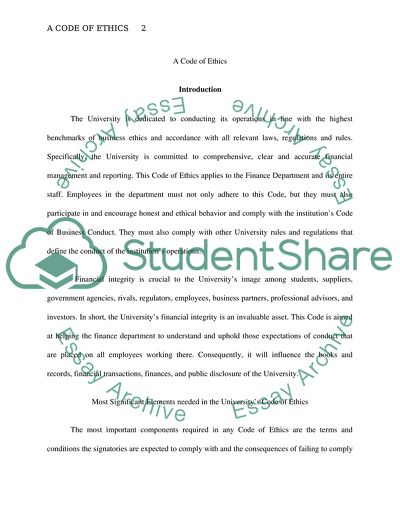Cite this document
(Most Significant Elements Needed in the Universitys Code of Ethics Report Example | Topics and Well Written Essays - 1500 words, n.d.)
Most Significant Elements Needed in the Universitys Code of Ethics Report Example | Topics and Well Written Essays - 1500 words. https://studentshare.org/education/1858095-a-code-of-ethics
Most Significant Elements Needed in the Universitys Code of Ethics Report Example | Topics and Well Written Essays - 1500 words. https://studentshare.org/education/1858095-a-code-of-ethics
(Most Significant Elements Needed in the Universitys Code of Ethics Report Example | Topics and Well Written Essays - 1500 Words)
Most Significant Elements Needed in the Universitys Code of Ethics Report Example | Topics and Well Written Essays - 1500 Words. https://studentshare.org/education/1858095-a-code-of-ethics.
Most Significant Elements Needed in the Universitys Code of Ethics Report Example | Topics and Well Written Essays - 1500 Words. https://studentshare.org/education/1858095-a-code-of-ethics.
“Most Significant Elements Needed in the Universitys Code of Ethics Report Example | Topics and Well Written Essays - 1500 Words”. https://studentshare.org/education/1858095-a-code-of-ethics.


